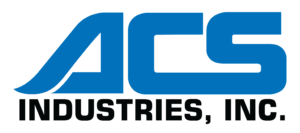Thermal Challenges in Future Mobility: Exhaust and Heat Management for Hydrogen, Hybrid, and EV Powertrains
ACS has been a trusted supplier of optimized exhaust components to automotive suppliers and OEMs for over 50 years. Gained over this tenure, our expertise in filtration components, heat sinks, NVH dampening and more, along with our technical mastery of a vast array of metals and alloys will allow ACS to continue to manufacture industry-leading exhaust components for the powertrains of the future even as the world moves on from traditional ICE vehicles.
Project engineers are grappling with how to manage extreme temperatures in hydrogen combustion and hybrid engines, as well as EVs. This blog dives into how ACS’s advanced exhaust and filtration technologies solve these problems—balancing durability, efficiency, and compliance with tightening emissions standards.
Hydrogen Powertrains
Hydrogen combustion engines present unique challenges: extremely high exhaust temperatures, water vapor as a byproduct, and variable combustion conditions that put unusual stress on exhaust and filtration systems. ACS addresses these by combining patented components, such as advanced mesh filters and heat-resistant dampers, with carefully selected alloys engineered to resist hydrogen embrittlement and corrosion. Our simulation-driven design process enables us to predict how these components will behave under prolonged thermal cycling, ensuring durability even in the most demanding operating conditions. With decades of exhaust experience across passenger, commercial, and specialty vehicles, ACS is uniquely positioned to help OEM engineers deliver robust and efficient hydrogen systems.
Hybrid Powertrains
Hybrids introduce the complexity of fluctuating thermal loads: frequent engine starts and stops, rapid warm-up cycles, and extended operation in partial load conditions. These cycles demand exhaust components that can withstand not just high temperatures but also repeated thermal shock. ACS leverages its deep technical knowledge of metals and alloys—from stainless steels to nickel-based superalloys—to select and manufacture components that resist fatigue, oxidation, and vibration over the life of the vehicle. Our ability to integrate filter media including knitted wire, woven wire, and expanded metal ensures optimal NVH damping and heat management, no matter the hybrid configuration. Furthermore, ACS’s global regulatory expertise ensures that these solutions comply with emissions and noise standards across regions, streamlining homologation for OEM programs.
Battery Electric Vehicles
While BEVs do not have traditional exhaust systems, they face growing thermal management challenges related to battery packs, e-motors, and power electronics. Heat sinks and filtration elements are critical in these systems to maintain efficiency and extend component life. ACS applies its engineering simulation capabilities to model thermal flow and NVH behavior in EV components, allowing us to design lightweight, highly efficient thermal solutions tailored to specific platforms. Our mastery of filter media technologies provides flexible options for thermal runaway prevention, shielding, acoustic control, and cooling air filtration. Importantly, our long-standing experience across diverse vehicle types gives us the ability to translate decades of exhaust heat management expertise into next-generation EV thermal solutions—supporting OEMs as they push toward lighter, more compact, and more efficient designs.
Partnering for Success in Future Powertrains
The rapid evolution of hydrogen, hybrid, and battery electric technologies means that thermal and filtration challenges are becoming more complex with every new vehicle program. The earlier OEM engineers engage ACS in the design cycle, the more value we can deliver—optimizing material selection, reducing development risks, and ensuring compliance with global standards from day one.
At ACS, we don’t just supply components—we co-engineer solutions. Our vast manufacturing capabilities, patented filtration products, engineering design-driven approach, and unmatched experience across vehicle types make us the ideal partner to help OEMs meet performance, durability, and regulatory demands for next-generation powertrains.
Let’s start the conversation. Connect with ACS today to explore how our technologies can support your next hydrogen, hybrid, or EV platform.



